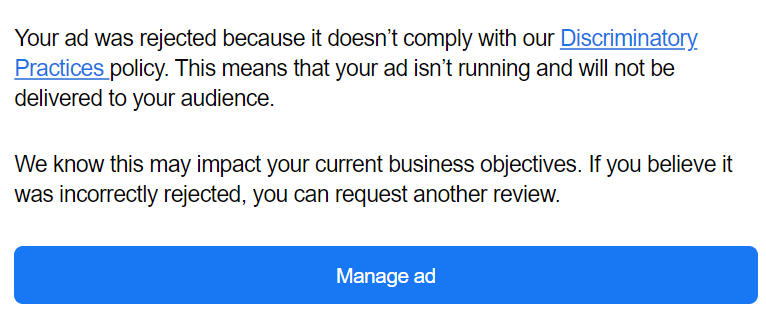
The share of Americans who are in favor of more regulation for tech companies is down significantly since 2021.
In April 2021, 56% of Americans wanted more regulation. This year, that number falls to 44%.
The percentage of Americans who want less government regulation in major tech companies has doubled, now one-in-five Americans are in favor of less regulation.
In this article you’ll learn how this could potentially impact PPC.
What’s Causing The Narrative Shift?
Over the past few years, there has been a lot of controversy over the amount of free speech on social media platforms.
Some of the main controversies that may come to mind:
- Banning individuals on social platforms for hurtful or hateful speech
- Tech giants purchasing media outlets
- Battling the misinformation sharing and fact-checking
Twitter likely comes to mind when you hear of individuals being banned. However, Twitter is not the only culprit of controversy.
Censorship is also a concern, as 77% of Americans think it is very or somewhat likely that social media sites intentionally censor viewpoints that they find objectionable.
How Does This Impact PPC Long-Term?
With less regulation likely in the future, this means that media and advertising platforms get to keep the control over what they offer (or don’t offer) to advertisers and users.
Advertisers have already seen the shifts in regulation, or lack of regulation, in some aspects.
In favor of regulation, Google (and other companies) have been implementing policies focused on the consumer experience and their privacy.
This affects PPC in multiple ways:
- Removing third-party cookies
- Limiting ad targeting options in platforms
- More broad initial targeting
- Privacy of search terms in Google Ads
Third Party Cookie Removal
With the removal ofthird-party cookies, advertisers must start building their first-party lists. First-party lists are a key component of retargeting individuals in the future.
If you’re asking how to build first-party lists, you may need to start shifting your PPC strategy.
Many companies see PPC as a last-click acquisition channel. If your company has a longer sales cycle, try shifting your strategy to include awareness tactics.
Also consider measuring soft conversions, which will help build your first-party lists to guide a user to their eventual purchase.
Limited & Broader Ad Targeting Options
If you work in the Meta (formerly Facebook) ad platform, you’ve likely been met with what I like to call the “black bar of death”:
Meta is limiting many ad targeting options, specifically in the demographic area. Areas I’ve seen limitations of include:
- Job Titles
- Employers
- Job Functions
Additionally, the platform has put in non-discriminatory practices into place. In some instances for advertisers, however, this can make your PPC strategy less effective.
For example, a local contractor company wants to post an ad hiring a Foreman or a Construction Crew laborer.
They know their target audience for this job is:
- Male
- Ages 25-50
- Within 30 miles of the city
Now, when trying to target this audience demographic, they’re now immediately met with ad disapprovals for what they consider discriminatory practices.
 Image credit: screenshot taken by author, June 2022
Image credit: screenshot taken by author, June 2022In order to serve this hiring ad, they now have to open up ad targeting to a broader audience, making their targeting and ad spend less effective overall.
If you’re a small business, every dollar counts. You don’t have money to waste on ineffective advertising.
Search Term Removals
Almost every advertiser has dealt with the lack of search term transparency in the last year or so.
In some instances, over 60% of an account’s search terms are hidden by Google for what they call “low search volume” or “non-converting search terms”.
However, advertisers know that is not the case. Google is hiding search terms that are actually converting and advertisers have no insight as to what they searched.
Especially with the move to broad match, advertisers need that guidance to help make better business decisions.
What Can You Do?
When it comes to feature removal, such as ad targeting or search terms, my main recommendation is to speak up. If you have a rep in those platforms, use them to your advantage. Make your voice heard.
Google has started taking advertiser feedback into account, and it shows with their revisions to its upcoming Privacy Sandbox.
Additionally, make sure to reach out to the Google Ads Liason on Twitter. This is a chance to reach someone within Google directly about your questions or issues.
As we shift towards less (or more, depending on how you look at it), regulation in tech, you may need to rethink the way PPC works for you.
Instead of looking at PPC as a last-click acquisition channel, look at it as an awareness tool and a way to complement your holistic marketing strategy.
Don’t keep your PPC efforts in a silo. By doing this, you’re limiting the relevance of this channel, and ultimately the success of PPC,
Featured Image: Azian Stock/Shutterstock







